Relativism either applies to itself or it doesn’t.
If it does, then it’s only relatively true.
If it doesn’t, then there’s an absolute truth.
Relativism either applies to itself or it doesn’t.
If it does, then it’s only relatively true.
If it doesn’t, then there’s an absolute truth.
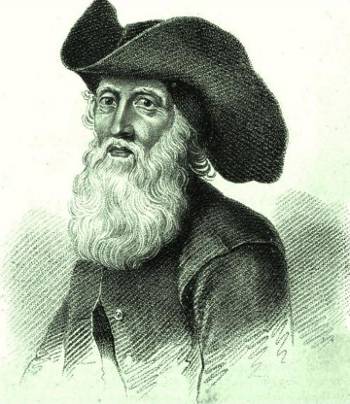
We know when Henry Jenkins died: Dec. 9, 1670. What we don’t know is when he was born. The Bolton laborer claimed to remember driving a cartload of arrows to North Allerton as a boy at the Battle of Flodden Field. That would mean he had been born in 1501 and was 169 years old at his death. Whether that’s true is anyone’s guess, but that’s the age that’s engraved on his tombstone.
If it is true, one author reckons, he certainly led an eventful life:
In his time the Invincible Armada was destroyed; the republic of Holland formed; three queens beheaded, Anne Boleyn, Catharine Howard, and Mary Queen of Scots; a king of Spain seated upon the throne of England; a king of Scotland crowned king of England at Westminster, and his son beheaded before his own palace, his family being proscribed as traitors; and, last of all, the great fire in London, which happened in 1666, toward the close of his wonderful life.
Indeed, to be a dutiful subject of the crown, he’d have had to change his religion eight times:
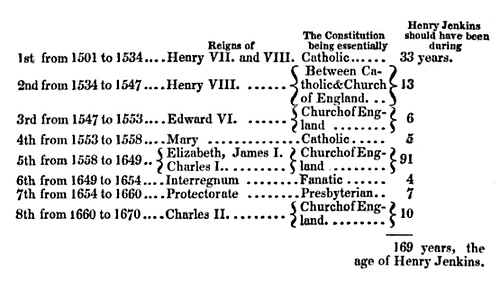
((From The Mirror of Literature, Amusement, and Instruction, Oct. 17, 1829.)
When the 18-year-old Ethel Barrymore informed her father that she was engaged, he wired:
CONGRATULATIONS LOVE FATHER
When she informed him she’d broken it off, he wrote:
CONGRATULATIONS LOVE FATHER
A puzzle by Isaac Asimov:
What word in the English language changes its pronunciation when it is capitalized?
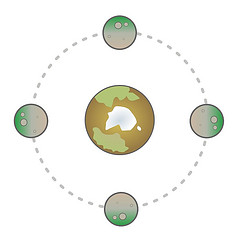
If the moon orbits the earth, always presenting the same face to us, does it rotate on its own axis?
It seems a simple question, but its appearance in the London Times in April 1856 set off a war among the English intelligentsia:
The answer, as William James would note in his parable of the squirrel, is that “which party is right depends on what you practically mean” by the term in question. Today we’d say that the moon rotates about its axis in the same time it takes to orbit the earth.
Incidentally, Lewis Carroll submitted two letters, but the Times didn’t print them. Perhaps it’s just as well — he was far ahead of everyone else: “I noticed for the first time the fact that though [the moon] only goes 13 times round the earth in the course of the year, it makes 14 revolutions round its own axis, the extra one being due to its motion round the sun.”
A Frenchman, who spoke very broken English, having some Words with his Wife, endeavour’d to call her Bitch, but could not recollect the Name. At last he thought he had done it, by saying, Begar, mine Dear, but you be one vile Dog’s Wife. Aye, that’s true enough, answer’d the Woman, the more is my Misfortune.
— The Jester’s Magazine, February 1766
Loud brayed an ass. Quoth Kate, ‘My dear,
(To spouse, with scornful carriage,)
One of your relatives I hear.’
‘Yes, love,’ said he, ‘by marriage.’
— I.J. Reeve, The Wild Garland; or, Curiosities of Poetry, 1866
artolater
n. a worshiper of bread
Shift each letter in EMBLAZONRY forward 13 places in the alphabet and you get an anagram of EMBLAZONRY:
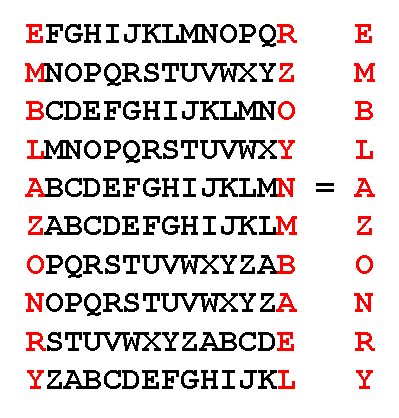
‘If a man followed the directions of a street-car company,’ said Jones, ‘he would never enter one of its cars. Once in, paradoxically, he would never leave it. Just read that sign; it says, ‘Passengers are forbidden to enter or leave this car while in motion.’ Now, how in the name of Lindley Murray can a passenger do otherwise than get in motion, while leaving or entering a street car?’
— Marshall Brown, Bulls and Blunders, 1893
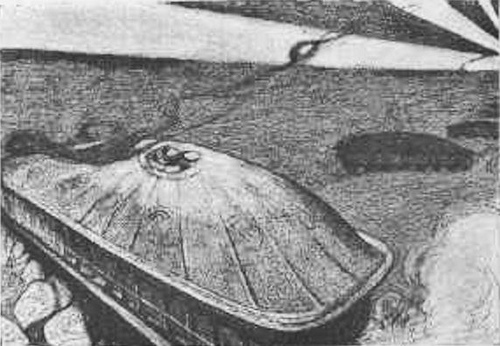
H.G. Wells’ 1903 story “The Land Ironclads” imagined a bold new war machine — a massive armored vehicle, “something between a big blockhouse and a giant’s dish-cover,” that ground remorselessly across the battlefield and gunned down enemy infantry:
They crawled level along the ground with one foot high upon a hillock and another deep in a depression, and they could hold themselves erect and steady sideways upon even a steep hillside. The engineers directed the engines under the command of the captain, who had look-out points at small ports all round the upper edge of the adjustable skirt of twelve-inch iron-plating which protected the whole affair, and who could also raise or depress a conning-tower set about the port-holes through the centre of the iron top cover. The riflemen each occupied a small cabin of peculiar construction, and these cabins were slung along the sides of and before and behind the great main framework, in a manner suggestive of the slinging of the seats of an Irish jaunting-car.
Thirteen years later, the first British tanks appeared at the Somme.
See The War Ahead.